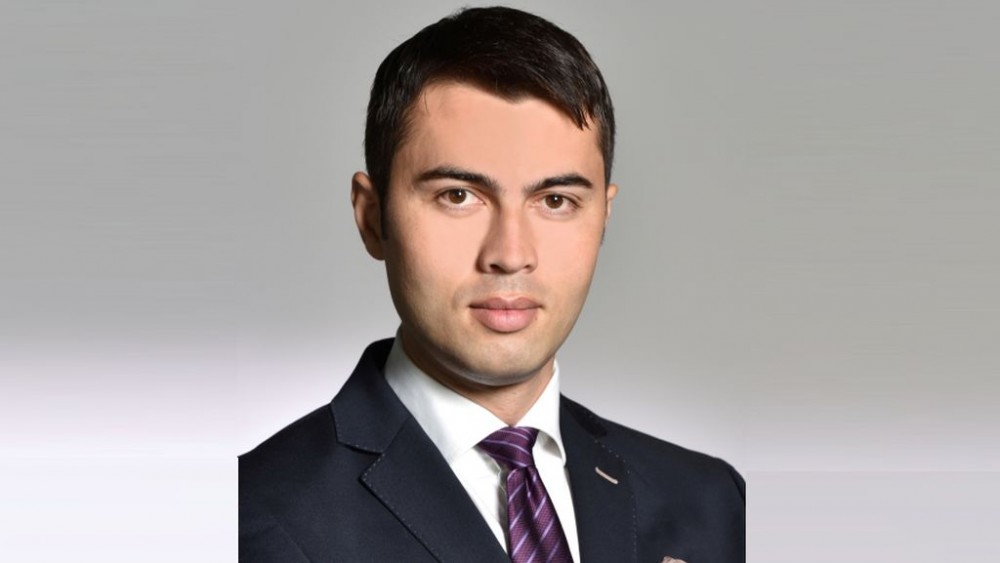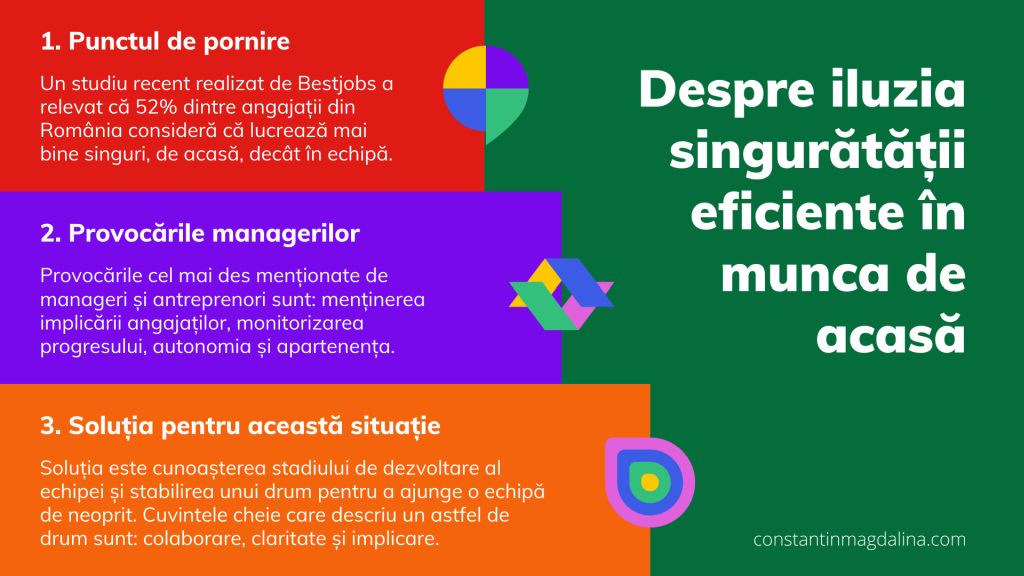
A recent survey conducted by Bestjobs revealed that 52% of employees in Romania say that they work better alone at home than in a team. A surprising result at first glance if we consider that utilization of Microsoft Teams has had an increase of 3891%, Zoom of 1788%, Slack of 1073%, and Webexof 1070%. So, the intensive use of collaboration platforms for teamwork did notdeliver results?
It seems that technology cannot make up for the lack of face-to-face cooperation. An immediate interpretation of this significant percentage would be that working from home has separated us physically and emotionally and that the perception of employees is that they can function better alone than together with their teammates.
Does remote team management really work?
We can speculate and turn the issue around in many ways. We can say that it is perhaps a failure of remote team management, that the number of conflict situations or commitments that do not make those who are part of the team accountable has increased. Hence, everyone's frustration that they can work better on their own. Perhaps the nature of the projects also has changed and privileged independent work. And we can continue the inventory of possibilities with different dosages of plausibility.
Valoria’sresearch onworking from home and its challenges hasrevealed as challenges most frequently mentioned by managers and entrepreneurs the following: maintaining employee involvement, monitoring progress in performing tasks, autonomy, and belongingat the same time. These challenges become immediately explainable if we consider the percentage of 52% of employees in Romania who consider that they work better alone than in a team.
What impact does physical and emotional distancing has on teams?
I was saying that physical distancing can easily turn into emotional distancing, which leads to isolation. And when team members feel isolated, they do not feel like interacting with their colleagues, and they don't manage to contribute satisfactorily for themselves either.
Where teams have made the necessary efforts to be able to work well together in the new context the negative aspects have diminished, allowing new ways of doing things both agreed and supported by all team members. We could understand that the 52% of responses attest that there are fewer who have made efforts in the sense of collaboration and have concluded that they work better alone.
Beyond these endogenous factors, we can identify customers as one of the significant exogenous factors. That is, most customers want to redesign their business, which generates new teams or the reorganization of existing ones.
There are two categories of challenges:
1) At the level of team members: How will I manage to do my work in the new team? (results, performance, contribution) How will I collaborate with the other colleagues? (relationships, use of common resources, the debate of ideas)
2) At the management level: How can it become, in optimal time, a productive team? How can people be involved and comply with a certain code of rules agreed by all team members?
What is the solution in this new (hybrid) working context?
The solution is to know the development stage of the team. Individual self-knowledge and knowledge of colleagues lead to knowledge of the development stage of the team setting a path to become an unstoppable team. The keywords that describe such a path are: collaboration, clarity and involvement.
For these keywords to be found in the description of the unstoppable team, it is good to consider the following steps: where we start from, where we want to reach and how we reach the desired level. In the end, the creation of a Team Book as a social contract between members aims to team up individuals who consider that they work better alone, an unstoppable team.
The Team Charter is a tool that gives results. The teams that created this document identified their purpose, objectives, resources, realized their code of conduct, evaluation stages, and any other elements through which they (re)defined their team in the new hybrid context. The level of involvement of the team members has increased significantly and the transformation from me to us has converted into business results.
Recommendations for managers and entrepreneurs
To help the teams and managers to do these recalibration steps, there is a specialized team coaching tool developed by Valoria, which is unique in the Romanian market. From its application and the results obtained, the main recommendations for decision-makers are the following:
• Assess the situation within the team with well-calibrated tools
• Involve employees in conversations about what has changed and how they perceive change
• Call on specialists to make a medium and long-term action plan to counteract the latent effects of the 12-14 months of social distancing
• Reconnect the teams
About ConstantinMagdalina
ConstantinMagdalina has 10 years of working experience, while he performed in multinationals both in Romania and abroad. Constantin has a master’s degree in Marketing and Business Communication from the Academy of Economic Studies Bucharest. He is certified in Lean Six Sigma and ITIL which provide him a good understanding of processes and transformations within organizations. The Chartered Institute of Marketing certification furthered complemented his expertise and knowledge in business. In those over 4 years of working activity in a Big4 company, he initiated and conducted studies that analyzed different aspects related to the business environment in Romania such as the economic growth predictions of companies in 2013-2016, knowledge management, the buying experience in the age of digital consumers, social media 2013-2015, the utilization of mobile devices in Romania. He is the author of numerous articles on topics related to innovation, the efficiency of business processes, social media, the consumers’ buying experience in the age of digital, trends, and emergent technologies. He is invited as a speaker at numerous events and business conferences.

































